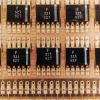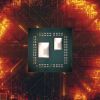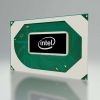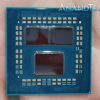-
 +32 +7
+32 +7Forget Moore's Law — Quantum Computers Are Improving According to a Spooky 'Doubly Exponential Rate'
They're getting really good, really, really fast.
-
 +33 +6
+33 +6What do we do about deepfake video?
There exist, on the internet, any number of videos that show people doing things they never did. Real people, real faces, close to photorealistic footage; entirely unreal events. These videos are called deepfakes, and they’re made using a particular kind of AI. Inevitably enough, they began in porn – there is a thriving online market for celebrity faces superimposed on porn actors’ bodies – but the reason we’re talking about them now is that people are worried about their impact on our already fervid political debate.
-
 +25 +4
+25 +4Does Neven’s Law Describe Quantum Computing’s Rise?
In December 2018, scientists at Google AI ran a calculation on Google’s best quantum processor. They were able to reproduce the computation using a regular laptop. Then in January, they ran the same test on an improved version of the quantum chip. This time they had to use a powerful desktop computer to simulate the result. By February, there were no longer any classical computers in the building that could simulate their quantum counterparts. The researchers had to request time on Google’s enormous server network to do that.
-
 +34 +2
+34 +2Discovery of a “Holy Grail” with the invention of universal computer memory
A new type of computer memory which could solve the digital technology energy crisis has been invented and patented by Lancaster scientists.
-
 +24 +2
+24 +2The Forgotten Operating System That Keeps the NYC Subway System Alive
Vintage technology has powered the innards of the NYC subway system for decades—and sometimes, it surfaces in interesting ways. This one’s for you, OS/2 fans. By Andrew Egan.
-
 +25 +4
+25 +4Apollo’s brain: The computer that guided man to the Moon
This is the story of the Apollo Guidance Computer that helped the Apollo astronauts safely navigate to the Moon. It was a computer that was so advanced that the engineers who created it said they probably wouldn't have tried to do so if they'd known what they were getting themselves into.
-
 +8 +1
+8 +1Sorry, Apple's controversial $1,000 computer-screen stand isn't a rip-off — it's a missed opportunity
Apple just announced a $US5,000 computer screen that doesn’t come with a stand. Instead, the stand costs an extra $US1,000.
-
 +30 +4
+30 +4Firefox gets aggro blocking ads from tracking you online.
Browser makers are using privacy features to try to win us over.
-
 +10 +1
+10 +1Retro PC Ads - 1975 Sphere 1
The Sphere 1 was a personal computer from 1975 built around the Motorola 6800 CPU. It was built by Sphere Corporation, located in Bountiful, Utah. Marketed as the first real computer (due to having a built in keyboard and monitor) targeted at consumers, it ran PDS (program development system) and included an editor, assembler and an edition of BASIC. The first few editions came as a kit, later on fully assembled units were available.
-
 +14 +2
+14 +2How Long do USB Flash Drives Actually Last? - Ask Dave Taylor
Think your USB thumb drives / flash drives are going to last forever? Turns out that you'll be lucky if they retain data for five years. Here's why...
-
 +27 +2
+27 +2Chrome to limit full ad blocking extensions to enterprise users - 9to5Google
In a response to negative feedback, Google shared that Chrome's current ad blocking capabilities for extensions will soon be restricted to enterprise users.
-
 +16 +2
+16 +2AMD Ryzen 3000 CPUs launching July 7 with up to 12 cores
As the prophecy foretold AMD has announced Ryzen 3000 CPUs at Computex 2019. From July 7, 2019, gamers will be able to slot Zen 2 processing power into their gaming PCs – harnessing all the world’s first desktop 7nm x86 CPU has to offer and running at colossal PCIe 4.0 bandwidth thanks to the X570 platform. There’s a lot to digest from AMD CEO Dr Lisa Su’s Computex Keynote, so let’s start with the best bits. First up, yes, you’ll be able to slot 12 whole processing cores, from dual 7nm chiplets, into your own machine at home thanks to the Ryzen 9 3900X.
-
 +13 +1
+13 +1Intel teases “nearly double” gaming performance with Ice Lake over last gen
It’s finally happening, folks. Intel is absolutely, 100% leaving the long-toothed 14nm process node for greener, or rather denser, pastures. Intel has arrived at Computex full of gusto and has previewed its mobile Ice Lake processors ahead of its keynote on May 28 at Computex, which I’m sure has nothing to do with AMD’s upcoming Computex keynote.
-
 +15 +1
+15 +1AMD Ryzen 3000 Announced: Five CPUs, 12 Cores for $499, Up to 4.6 GHz, PCIe 4.0, Coming 7/7
Today at Computex, AMD CEO Dr. Lisa Su is announcing the raft of processors it will be launching on its new Zen 2 chiplet-based microarchitecture. Among other things, AMD is unveiling its new Ryzen 9 product tier, which it is using for its 12-core Ryzen 9 3900X processor, and which runs at 4.6 GHz boost. All of the five processors will be PCIe 4.0 enabled, and while they are being accompanied by the new X570 chipset launch, they still use the same AM4 socket, meaning some AMD 300 and 400-series motherboards can still be used. We have all the details inside.
-
 +27 +2
+27 +2How computing's first 'killer app' changed everything
Technology reshapes the workplace in much subtler ways than simply robots stealing jobs.
-
 +5 +1
+5 +1Linux gets CPU frequency scaling for Raspberry Pi
Although the small computer Raspberry Pi can be relatively easily overclocked, for the CPU frequency so far mainly provides the firmware. The Linux kernel now gets drivers to control the CPU frequency itself.
-
 +12 +1
+12 +1How computing's first 'killer app' changed everything
In 1978, a Harvard Business School student named Dan Bricklin was sitting in a classroom, watching his accounting lecturer filling in rows and columns on the blackboard. Every time the lecturer changed a figure, he had to work down and across the grid on the board, erasing and rewriting other numbers to make everything add up, just as accounting clerks all over the world did every day in the pages of their ledgers.
-
 +13 +1
+13 +1AI can learn real-world skills from playing StarCraft and Minecraft
Dario Wünsch was feeling confident. The 28-year-old from Leipzig, Germany, was about to become the first professional gamer to take on the artificial intelligence program AlphaStar in the rapid-fire video game StarCraft II. Wünsch had been professionally playing StarCraft II, in which competitors command alien fleets vying for territory, for nearly a decade. No way could he lose this five-match challenge to a newly minted AI gamer.
-
 +10 +1
+10 +1A new camera can photograph you from 45 kilometers away
Long-distance photography on Earth is a tricky challenge. Capturing enough light from a subject at great distances is not easy. And even then, the atmosphere introduces distortions that can ruin the image; so does pollution, which is a particular problem in cities. That makes it hard to get any kind of image beyond a distance of a few kilometers or so (assuming the camera is mounted high enough off the ground to cope with Earth’s curvature).
-
 +3 +1
+3 +1A Simple Fix To Poor Business Communications
Wasteful communication is a major problem faced by businesses all over the world. However, poor employee communication skills alone cannot be blamed for this. Actually, a major portion of the blame has nothing to do with employees communication skills at all. Much of the cause of inefficient communications is from the use of poor communication systems.
Submit a link
Start a discussion




















